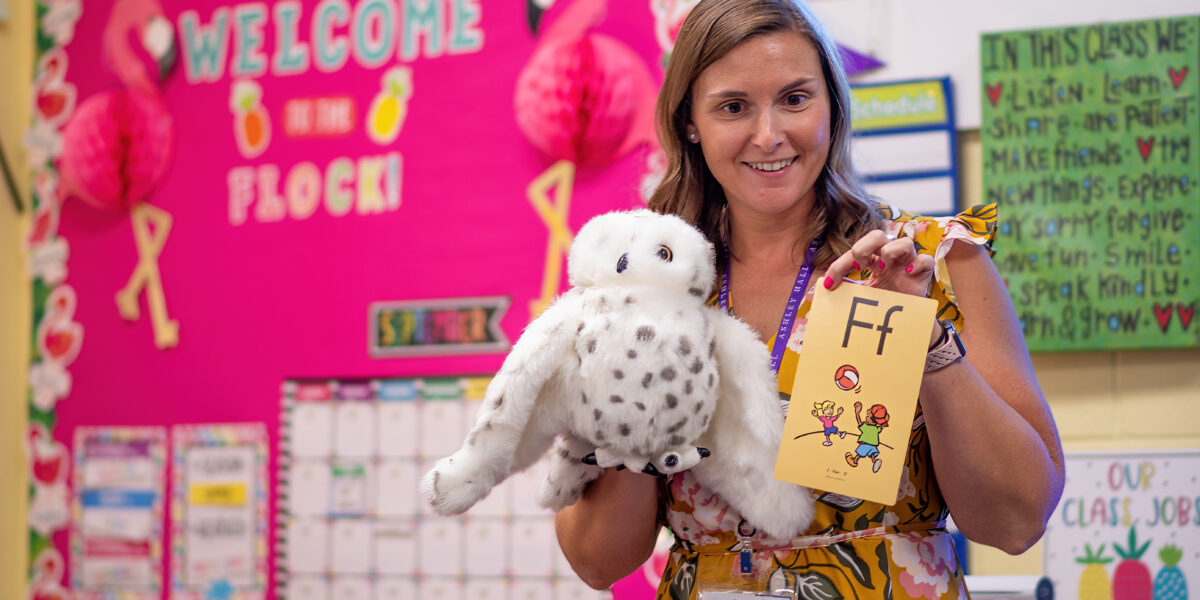Back to News
Lower School9/6/23
Educators Adopt a New Phonics Program to Teach Students How to Read and Write

At the start of the 2023-24 school year, Lower School students fell in love with a new face in Pardue Hall: Echo the owl puppet. But don’t let his cute and cuddly appearance fool you – he joined classrooms to bring some serious learning through the Fundations® program, an educational system helping Lower School students learn phonics, spelling, and handwriting in a whole new way.
“The Fundations® program is designed to provide direct systematic sequence phonics instruction at a pace that’s accessible,” says learning specialist Mary Allen Edgerton ’87. “The children learn sound by sound in order to learn to build them into words, then build into sentences, then build into fluency.”
With their new curriculum, classroom teachers spend a 20- to 30-minute block each day explicitly teaching a phonics principle, explains Lower School librarian and literacy specialist Allison Bischoff. Students will learn the name of the letter, a keyword, and a sound. For example, in Emily Matus’ kindergarten classroom, one of the three letters they were learning at the start of the year was T. “T. Top. Tuh,” she articulated for her students. This is where Echo comes in.
“When Echo is facing the teacher, that’s her time to talk,” Bischoff says. “Then as soon as students see Echo facing them, that means it’s their turn to repeat her. It’s a visual cue for when it’s their turn to participate. It’s a lot of repetition, but repetition is what gets it from their short-term memory to their long-term memory, which is our goal.”
After learning as a group, each student picks up their own magnetic white board on which they practice letters and eventually build words. “What I love about this program is that it is more systematic and explicit,” Bischoff says. “It builds in a lot more vocabulary and really word study to teach kids the basic building blocks of language.”
This year, Fundations® is being used in kindergarten and first grade, then next year it’ll transfer to second and third. “The other thing that I love about this curriculum is that there’s only a small handful of activities and they never change from kindergarten to fourth grade,” Bischoff says. “The only thing that is changing is the actual phonic skill that is being taught. It’s the same character the whole way through to reinforce procedures and help our students learn.”
